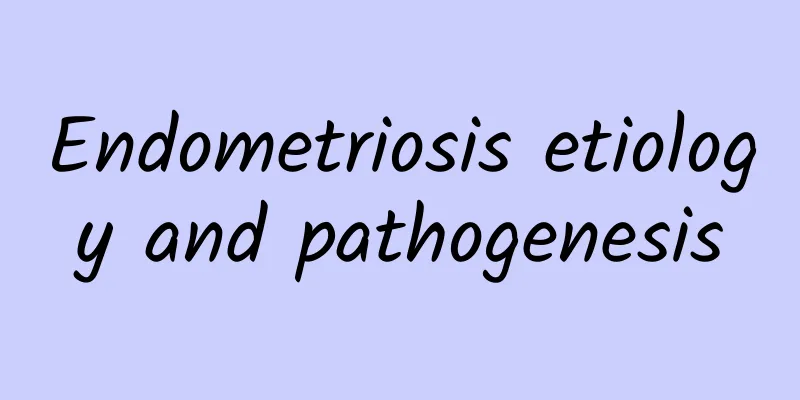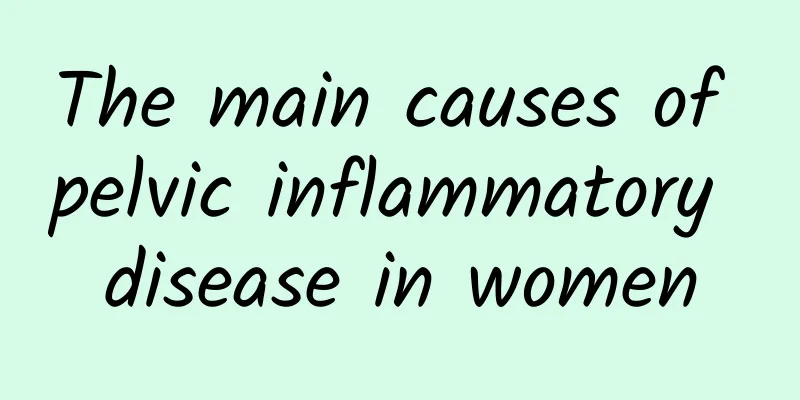Endometriosis etiology and pathogenesis

|
The etiology and pathogenesis of endometriosis have not yet been fully clarified, but it is mainly related to genetic factors, retrograde menstruation, immune abnormalities, and the combined effects of environment and hormones. The pathological characteristic of this disease is that endometrial tissue appears outside the uterine cavity, leading to inflammatory reactions, pain and infertility. Genetic factors may play an important role in this disease. Studies have found that women whose mothers or sisters have endometriosis in their families have a significantly increased risk of developing the disease. Environmental factors include long-term exposure to harmful substances such as dioxins, which may interfere with the endocrine system, aggravate hormonal disorders, and increase the risk of endometriosis. Retrograde menstruation is currently a hypothesis with a high support rate. Some menstrual blood and the endometrial tissue in it enter the pelvic cavity through the fallopian tubes and grow in the pelvic area. Abnormalities in the immune system may make it impossible for the body to effectively clear these endometrial tissues that have separated from the uterine cavity, allowing them to continue to survive in the body and cause chronic inflammatory responses. Imbalance in hormone levels is also closely related to this disease. Excessive estrogen will stimulate the growth of ectopic endometrial tissue, while insufficient progesterone cannot effectively inhibit its further spread. Genetic factors may play an important role in this disease. Studies have found that women whose mothers or sisters have endometriosis in their families have a significantly increased risk of developing the disease. Environmental factors include long-term exposure to harmful substances such as dioxins, which may interfere with the endocrine system, aggravate hormonal disorders, and increase the risk of endometriosis. Retrograde menstruation is currently a hypothesis with a high support rate. Some menstrual blood and the endometrial tissue in it enter the pelvic cavity through the fallopian tubes and grow in the pelvic area. Abnormalities in the immune system may make it impossible for the body to effectively clear these endometrial tissues that have separated from the uterine cavity, allowing them to continue to survive in the body and cause chronic inflammatory responses. Imbalance in hormone levels is also closely related to this disease. Excessive estrogen will stimulate the growth of ectopic endometrial tissue, while insufficient progesterone cannot effectively inhibit its further spread. Early screening and a healthy lifestyle are essential for the prevention and management of endometriosis. Regular gynecological examinations can help detect potential problems early, especially when there is severe menstrual pain, irregular bleeding or infertility, and you should seek medical attention for further diagnosis. The diet can appropriately increase the intake of fish rich in omega-3 fatty acids, such as salmon, because their anti-inflammatory effects can relieve symptoms; at the same time, avoid high-fat, high-refined sugar foods to reduce the risk of inflammation. Continuous moderate exercise, such as yoga or swimming, can also improve hormone balance in the body and enhance immune function, further helping to manage the condition. If endometriosis is diagnosed, early treatment includes drug control, such as GnRH agonists, birth control pills or progestins; severe patients may require surgical treatment, such as laparoscopic removal of lesions or hysterectomy. |
<<: How to judge uterine prolapse and what to do
>>: Can patients with adenomyosis eat shrimp?
Recommend
Recommended hospitals for hyperprolactinemia
Where is the best hospital for the treatment of h...
What should women do if they have irregular menstruation? Eating more of these 4 foods is very beneficial for treating irregular menstruation.
Irregular menstruation is a common gynecological ...
Love tea eggs for breakfast? PK poached egg, stewed egg, which one has the highest calorie...
There are many choices of egg dishes for breakfas...
What is the cause of uterine fibroids? What are the factors that prevent the recurrence of uterine fibroids?
Uterine fibroids, also known as uterine leiomyoma...
How to effectively prevent vaginitis in women during menstruation
The menstrual period is a favorable time for vagi...
Clinical symptoms of cervical hypertrophy
Among the many gynecological diseases, cervical h...
7 female groups are prone to cervical erosion. Two small folk remedies can cure cervical erosion.
Which women are prone to cervical erosion? 1. A w...
Is it still possible to get pregnant if you have premature ovarian failure and no menstruation?
Is it still possible to get pregnant if you have ...
Do women with mild cervical erosion need surgical treatment? Four questions you must know about mild cervical erosion
Although mild cervical erosion is the mildest cer...
Save 640,000 obese schoolchildren: Eat more fruits and vegetables to lose weight and prevent cancer
Being fat as a child is not a blessing! Studies h...
Will cervicitis affect pregnancy? If you have cervicitis, you should pay attention to these matters
Will cervicitis affect normal pregnancy in women?...
What to do if you have a burning sensation with vaginal candidiasis
Vaginal candidal infection is a common inflammato...
The best treatment for dysmenorrhea in girls
What is the best treatment for dysmenorrhea in gi...
What's wrong with bleeding one week after period?
What's wrong with bleeding one week after per...
How to regulate irregular menstruation and what to eat
How to regulate irregular menstruation and what t...









